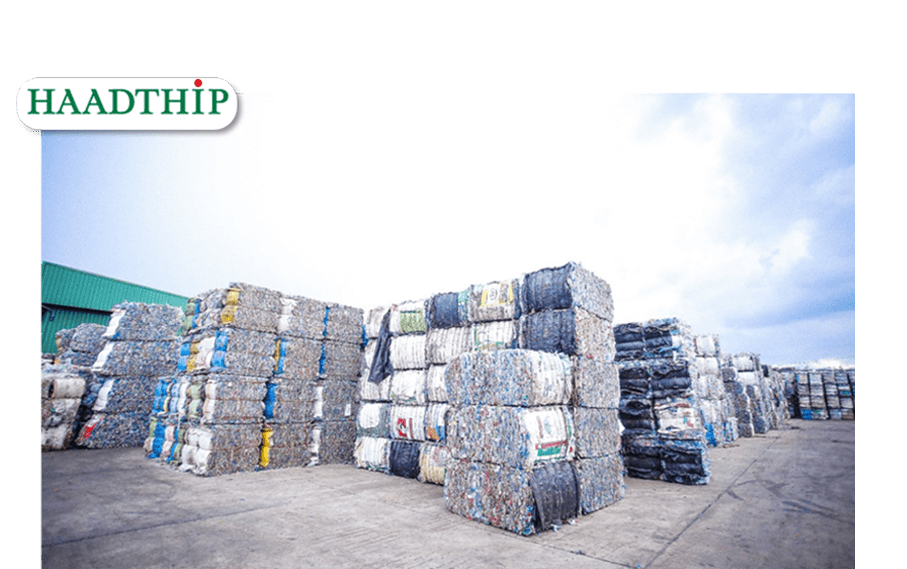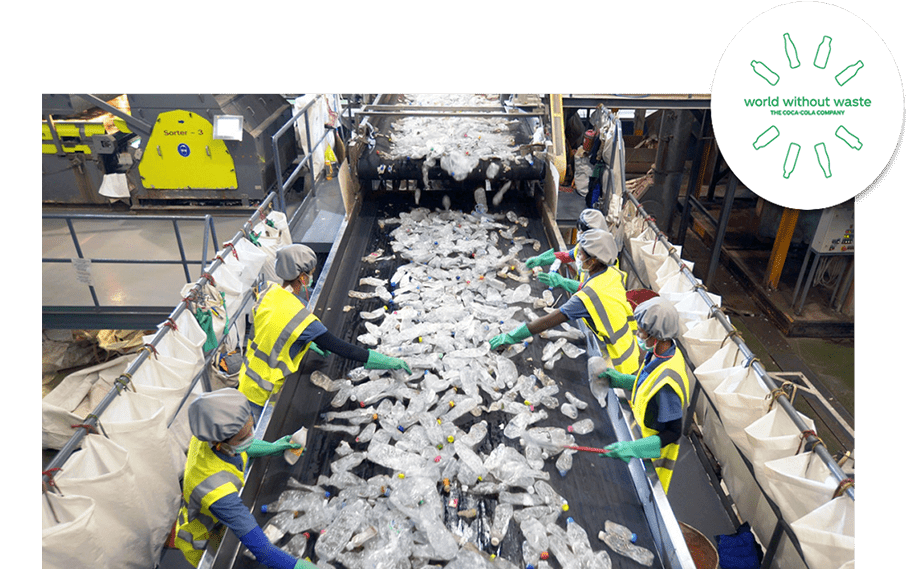Environmental
Energy & Climate Change
Although the food and beverage industry help increases the reach of food and beverage at a wide rate. At the same time, it also increases the impact on climate change problems. Which is a situation that is a major global problem.
HaadThip as a manufacturer and distributor of beverage products have given importance and are well aware of the impact of our operations on the community and the environment. Therefore, we are determined to reduce the impact from our continuous business growth. With a policy to control and reduce energy consumption and the releasing of greenhouse gas emissions to meet international standards. Which has been monitor continuously from 2013 until the present to be part in driving Thailand to achieve its goal of global cooperation in addressing climate change.
Total GHG Emission (tCO2e)
Remark:
- The greenhouse gas emissions reporting scope covers the Hatyai Plant in Songkhla Province and the Punpin Plant in Surat Thani Province, for the period from January 1 to December 31, 2024.
- The greenhouse gas emissions data for 2024 is in the process of being verified and certified by the Thailand Greenhouse Gas Management Organization (Public Organization) (TGO).
- Greenhouse gas emissions per unit of production are calculated as the sum of Scope 1 and Scope 2 emissions.
- Scope 3 indirect greenhouse gas emissions are reported in accordance with the requirements for calculating and reporting organizational carbon footprints, as issued by the Thailand Greenhouse Gas Management Organization (Public Organization) (5th Revision, January 2021), considering activities with high emissions (Category 1 – Acquisition of primary raw materials).
- The emission factors are referenced from the Thailand Greenhouse Gas Management Organization (Public Organization) (TGO).
solar panels installed
Generated over
kW per year
GHG Emissions
kgCO2e
HaadThip acknowledges the growing risks and impacts arising from global environmental shifts and is committed to contributing meaningfully to emission reduction efforts. Our direction aligns with the sustainability policies of The Coca-Cola Company and Thailand’s national frameworks. To ensure consistent progress and effective planning, the company has established a clear, actionable emissions management policy as follows:
- Integrate GHG emissions strategy into corporate planning, covering the entire supply chain to support sustainable business growth.
- Promote a low-carbon corporate culture, innovation, and clean technologies, with a focus on improving production process efficiency. The company has set a target to achieve net zero GHG emissions by 2050.
- Fostering Environmental Awareness and Behavior Change, encouraging and promoting environmentally friendly behaviors among employees, their families, business partners, and all stakeholders.
- Implement sustainable procurement practices, prioritizing raw materials, products, and services that have minimal impact on climate change.
- Monitor the organization’s GHG emissions, set reduction targets, and identify and implement continuous GHG reduction initiatives.
- Promote renewable energy, emphasizing clean or alternative energy sources to replace electricity derived from fossil fuels.
Efficient Energy Management
The company recognizes the critical role of energy as a core resource in its production processes and business operations. Energy consumption directly impacts both operating costs and the organization’s greenhouse gas emissions. For this reason, the company places strong emphasis on systematic energy management, covering both the efficient use of energy and the transition toward renewable energy sources.
HaadThip's Energy Management Strategy
The company has established an energy management strategy and built three key pillars:
- Enhancing energy efficiency in production processes: The company has installed an Energy Monitoring System to analyze energy consumption and identify opportunities for improvement, such as optimizing air pressure, repairing air leakage in compressed air systems, and controlling refrigeration temperatures to appropriate levels.
- Transitioning to renewable energy: More than 9,000 solar panels have been installed, in both rooftop and floating solar formats, at the Hatyai and Punpin Plants. These systems generate renewable energy equivalent to 13% of the total electricity consumed, reducing greenhouse gas emissions by more than 3,000 metric tons of CO2 equivalent per year.
- Designing production processes for energy efficiency: The development of a new glass bottle production line has helped reduce energy loss during production and supports a fully integrated recycling process for packaging.
Haadthip Initiative
Water Management
Water is a vital resource in our business operations, and managing it efficiently while minimizing waste is crucial for the long-term success and sustainability of our company. Recognizing the importance of this, HaadThip has established dedicated teams to oversee water management and reduce resource loss. We've also set clear goals for improving our water management practices. As HaadThip relies heavily on groundwater for production, inefficient water use could not only hinder our business growth but also negatively impact the communities and ecosystems that share these water resources. To ensure sustainable water management and to reduce our environmental footprint, we regularly assess the risks associated with our water sources. These assessments are guided by The Coca-Cola Company's standards and are conducted in collaboration with experts from Prince of Songkla University every five years. Our water sources evaluation are under the standards set by the Department of Groundwater Resources and the Water Framework Directive (WFD). These evaluations help us monitor and analyze water conditions, both in normal times and during crises, allowing us to prevent and mitigate any potential impacts on our operations, the surrounding communities, and the environment. The most recent risk assessment revealed that the groundwater sources we use are located in a low-risk area and exhibit low levels of water stress.
Total treated Wastewater (Cubic Meters)
“Philanthropy” Rak Nam
Water is a significant factor in Life and community sustainability.
Water is also equally important for HaadThip as a primary ingredient of our product. Therefore we together with the Coca-Cola business group in Thailand, government sectors and local private sectors to initiated the project to contribute to the water stewarding and create awareness of the value of water resources with the goal to return water in quantities being brought back to the community and nature equivalent to the quantities which have been spending on business operation since 2009 until the present.
Beneficiary
Over
80 villages
Over
4,000 households
Installation
Over
900
check dams built
Over
40
mountain water supply systems installed
Total water Storage Over
1,800,000 m3
water access
Plantation
Over
12,000
perennial tree planted
Plantation
Over
250,000
vetiver grass planted
Waste Management
'Packaging management is of utmost importance in the beverage industry. HaadThip as a producer and distributor of beverages that utilize plastic bottles, aluminum cans, and glass bottles, we recognize that effective packaging management not only meets market and consumer demands but also contributes to sustainability and demonstrates corporate social responsibility. Therefore, the company has developed strategies and business plans aligned with the "World Without Waste" policy, which is a core vision of The Coca-Cola Company. In addition to this, HaadThip places a strong emphasis on addressing and mitigating the packaging waste crisis, particularly the impact of plastic waste. This commitment reflects the company’s genuine dedication to environmental restoration and its responsibility to society.
PET Packaging
100%
fully recyclable
Aluminum Can
- 100% fully recyclable
- Over 90% of recycled aluminum content
Glass Bottle
45-65% of 90%
of recycled glass content
General
waste
Recycle
waste
Hazadous
waste
The Waste Separation Process
HaadThip has implemented a waste management strategy aimed at optimizing resource utilization while minimizing environmental impact. The plan includes setting a target to increase the recycling rate of waste and materials to over 90% and reducing general waste to less than 10% each year to promote waste recycling and reduce the amount of waste sent to landfills from production processes. Additionally, the company has developed a waste management guideline and provides training to employees to enhance their knowledge and understanding of effective waste segregation and management to reflect the company’s commitment toward social responsibility and sustainable environmental stewardship.
Recycled waste categorised by type
PET Collection Project


Under The Coca-Cola Company's World Without Waste vision of creating a world where our packaging does not end up as waste, HaadThip Public Company (Limited) has collaborated with Indorama Polyester Industries PCL, Zing Whor Thai Co., LTD and Jiu Long Thai Co., Ltd., the leaders in plastic and recycling industries in piloting an Extended Producer Responsibility (EPR) project in Thailand. Through this partnership, we provided support to help participating recyclers collect more bottles for proper recycling in 2020. As a result, approximately 14,000 tons of post-consumer PET bottles were collected, leading to a reduction of up to 32,000 tons of CO2 emission equivalence.
